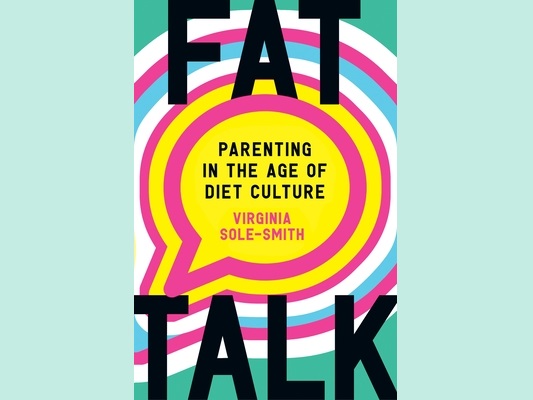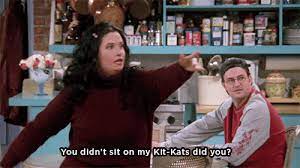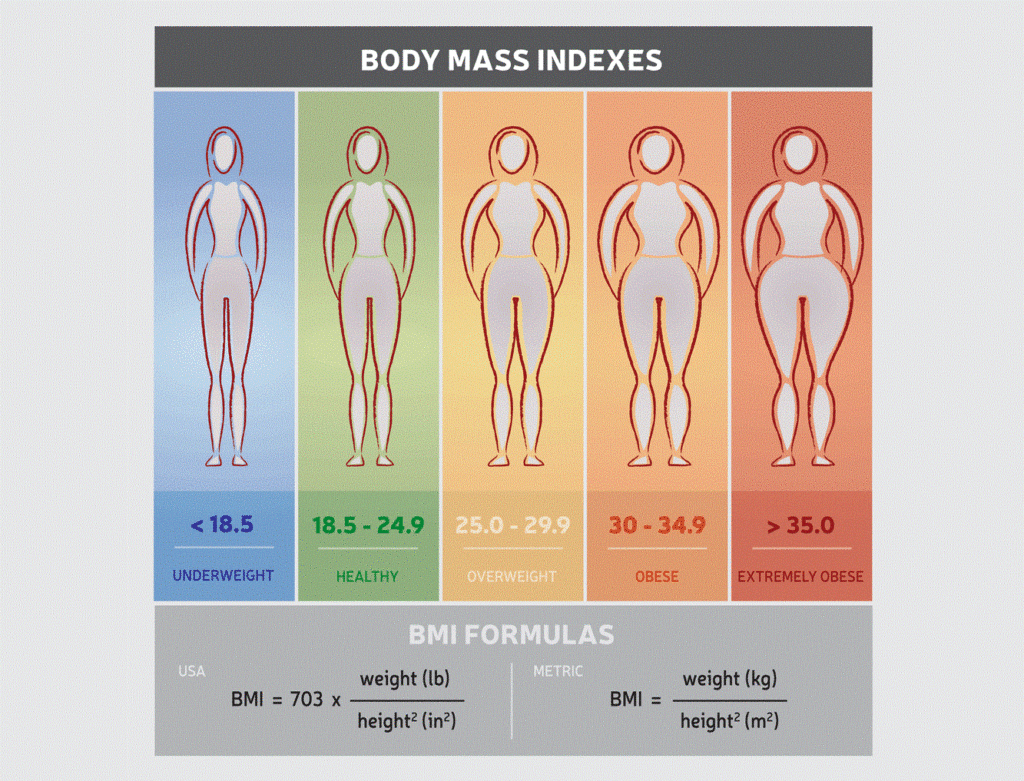Part 1 – Perceptions
I’ve been in the same book club for eight years (which is far longer than any of us thought it would actually last, to be honest). Over time we’ve read a range of fiction and non-fiction, things that are light and funny and things that are thought- and discussion-provoking. I don’t often write about book club books on this blog, but when I do it’s generally because something sparked some intense introspection and good group discussion. Recently we read Fat Talk: Parenting in the Age of Diet Culture, by Virginia Sole-Smith, [1] which was selected by the mom of a young girl. (She has a young boy as well, but as our book club is made up of women, our discussion was focused heavily on the female experience.)
The gist of the book is that we live in a society filled with unrealistic expectations when it comes to body shape and size, and that pervasive anti-fat bias leads to unhealthy behaviors, such as extreme dieting and exercise. Having obsessed over my own weight for the majority of my life, and wanting better for my niece, who is entering adolescence, I can get on board with all of that. I very much see the need for a more open, supportive culture that focuses on healthy eating and activity instead of size or weight as a goal. That all makes sense to me at an intellectual level.

Image credit: [2]
However, the reason why I decided to dig deeper into this subject in a blog post was because of a completely unexpected and intense negative reaction to certain parts of this book. Sole-Smith’s overall message and approach as described above are necessary, but I found myself bristling at some claims she made (such as the correlative – not causative – relationship between weight and health) and certain practices she described (such as allowing kids to eat whatever snacks or candy they want at any time).
Fat Phobia
I fully admit that I have a level of anti-fat bias, which has been supported by all kinds of media over the course of my life – from idolizing the bodies of Photoshopped models and starving pop stars in magazines to laughing at Fat Monica on “Friends.” Many of us are taught that “it’s what’s on the inside that counts,” but we still count calories and judge our value by the numbers on the scale and our clothing labels… and we judge others too.
I’ve starved myself, over-exercised, and thrown up food at various points over the years (mostly my teens and twenties), trying to achieve arbitrary weights or sizes. And during those times I’ve been especially judgmental of people who are overweight, afraid of looking like that myself and in turn being the subject of judgment. There is a pervasive, persistent, “truthy” belief in our society that weight loss is simply a matter of discipline – that if only you try hard enough, you too can be thin. Unfortunately, that is not the case, with genetics and epigenetics (environmental impacts on how one’s genes work) stacking the deck against many people.
With almost one third of Americans considered overweight and more than a third considered obese, [3] it’s safe to say that we all know people who have struggled to lose weight and/or to keep it off, with a specific weight or clothing size being the goal. I remember hearing an interview on NPR several years ago with a woman who had lost more than half of her body weight, but between the intense pain of multiple skin-removal surgeries and the continued restrictions on food intake to maintain her new weight, she said she was a much happier person when she was fat, and that she missed that person.

(Also: RIP, Matthew Perry.)
Image credit: [4]
What the Numbers Say
Sole-Smith’s argument is – in part – that we should stop trying to lose weight and focus on healthy behaviors instead. Two studies [5],[6] referenced in a Scientific American article [7] referenced in her blog [8] examine how it is possible to be fat and fit at the same time, but they still conclude that physical activity is the factor associated with health outcomes in these scenarios.
In her book, she mentions health studies that have been conducted about weight and comorbidities, such as heart disease and diabetes, saying that they only point to correlation, not causation. Given that, she concludes that “not knowing how weight influences health means that we also don’t know that lowering weight is necessary to reduce their disease risk.” Of course it is a complex subject, and there are always complicating factors – poverty, discrimination, and access to nutritious foods are prime examples – but to me it seems like her claim is a bridge too far.
Based on my reading of the book, it felt like the idea that extreme obesity can prevent someone from participating in healthy activities in the first place was glossed over, as was the concept that reduction in weight can lead to reduction of certain health risk factors, such as high blood pressure or joint damage. Understanding that certain simplifications are necessary when attempting to summarize a vast sea of information (I know something about that), it did feel to me at times that certain information that contradicted her position was curiously absent.
Focus on the Real Problems
In our book club discussion, though, we recognized that for the vast majority of cases, the concept rang true that eating nutritious food and being active are where we should focus our attention, not on clothing sizes, scale readings, and certainly not on Body-Mass Index, which was never intended to be a measure of health.[9] (Indeed, there are examples of muscle-dense elite athletes having BMIs in the overweight or obese categories. [10])

Image credit: [11]
One mom talked about her pediatrician’s near obsession with numbers and percentiles, when a normal population includes kids distributed throughout a bell curve – not everyone can be exactly average. When kids (or people of any age) get into the tails of the bell curve – extremes in either direction – that warrants further attention and possibly action. For that reason, a preoccupation with weight as a matter of course can be unnecessary at best and concerning at worst, especially if it is used as a proxy for overall health. In that situation doctors run the risk of letting weight take precedence over other symptoms that may be cause for alarm. We know that happens with adults too, when doctors are much less likely to seriously evaluate the concerns of their overweight patients.[12]
But, as I said before, this subject is complex and fraught on many levels, and perceptions around the relationship between weight and health were not the only topic that caught my attention in this book. Next week we’ll dive into another one: eating behaviors and what parents tell their kids.
~
In the meantime, I’d be curious to hear what perceptions about weight you hold and are trying to shed. Has anything helped you to succeed in a perception shift?
Thanks for reading!
[1] https://www.goodreads.com/en/book/show/61144950
[2] https://www.goodreads.com/en/book/show/61144950
[3] https://frac.org/obesity-health/obesity-u-s-2
[4] https://www.buzzfeed.com/elliewoodward/courteney-cox-loved-playing-fat-monica-friends
[5] https://www.ncbi.nlm.nih.gov/pmc/articles/PMC5510687/
[6] https://www.sciencedirect.com/science/article/abs/pii/S0033062013001552?via%3Dihub
[7] https://www.scientificamerican.com/article/in-obesity-research-fatphobia-is-always-the-x-factor/
[8] https://virginiasolesmith.substack.com/p/diet-culture-at-the-dinner-table
[9] https://www.businessinsider.com/bmi-is-bogus-best-way-to-tell-if-youre-a-healthy-weight-2016-9
[10] https://www.newscientist.com/gallery/obese-olympians/
[12] https://www.nytimes.com/2016/09/26/health/obese-patients-health-care.html
1 Comment
Shane · November 12, 2023 at 7:10 pm
what an awesome read! I have struggled with my weight (my whole life as well, and still do. Or rather, I have struggled with my value as it pertains to my weight, size and shape. Working through all of the stories we have been told about that value has been pretty hard. I think the most important thing I’ve done has been to replace those old BS stories with new ones that reflect healthy self love. Those new ones are still being written, and are part of a process (which most likely means they will continue to evolve for forever. Blessing/curse!) But doing my best to not listen to the old stories has been super helpful.